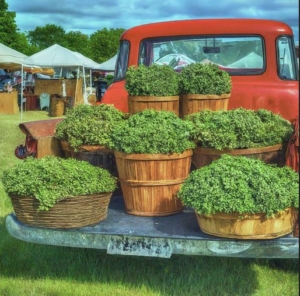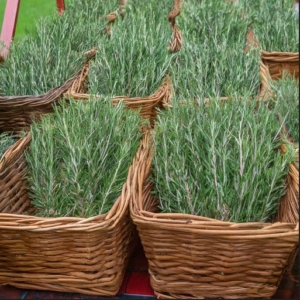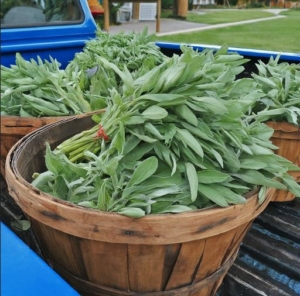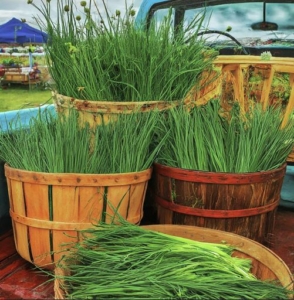Organic Herbs Europe: The Best Guide for Buyers and Businesses – 13 Tips
We supply organic herbs, and businesses in the Organic Herbs Europe category that are in the Organic Herbs Europe category can buy from us in bulk, including buyers of fresh organic rosemary, basil, sage, chives, thyme, oregano, and tarragon. At Mulberry Growers, we care about your mastery of the market, and we strive to keep you ahead of the curve.

Read on to comprehensively understand how you should move forward when purchasing and after purchasing our fresh organic herbs, including the steps you take to maintain the exceptionality and quality of our organic herbs.
Use these Handling and Processing Standards after Buying Organic Herbs from Us
Separation Practices: Ensuring that organic products or commodities that emerge from the Organic Herbs Europe category are handled separately from non-organic products or commodities that emerge from the Organic Herbs Europe category is crucial for maintaining organic integrity. This involves using dedicated equipment and processing facilities exclusively for organic items to prevent cross-contamination.
Implementing strict cleanliness protocols and thorough cleaning procedures is necessary to avoid any potential mix-ups. Organic products or commodities that emerge from the Organic Herbs Europe category should be stored in designated areas that are separate from non-organic goods to further prevent contamination. These practices are essential for preserving the authenticity and quality of organic products or commodities that emerge from the Organic Herbs Europe category, meeting regulatory requirements, and satisfying consumer expectations for genuine organic offerings.
Processing Methods: Adhering to specific organic processing methods is essential to ensure that organic products or commodities that emerge from the Organic Herbs Europe category remain true to their claims. This means using only natural and approved ingredients without the inclusion of synthetic additives or genetically modified organisms (GMOs). Ensuring that all processing practices comply with organic regulations is crucial for maintaining product integrity. Using only additives permitted under organic standards helps uphold the core principles of organic production. These practices are vital for meeting regulatory requirements and ensuring that processed products or commodities that emerge from the Organic Herbs Europe category maintain their organic status throughout the supply chain.
Certification for Facilities: Obtaining certification for processing facilities is essential for ensuring that operations meet organic standards. Facilities must achieve organic processing certification to demonstrate compliance with required criteria. Regular inspections of these facilities are necessary to verify adherence to organic practices and maintain certification. Additionally, training staff on organic handling and processing requirements is crucial for ensuring consistent application of standards. These measures support the overall quality and integrity of organic products or commodities that emerge from the Organic Herbs Europe category, ensuring that facilities continue to meet organic certification requirements and produce products or commodities that emerge from the Organic Herbs Europe category that meet consumer expectations.


Certified Organic Sourcing
In Europe, working with reputable certification organizations is fundamental for verifying the organic status of products or commodities that emerge from the Organic Herbs Europe category. Compliance with the EU Organic Certification ensures that products or commodities that emerge from the Organic Herbs Europe category meet stringent European standards, while the USDA Organic certification is crucial for those entering the U.S. market. Additionally, adhering to other international certifications such as JAS (Japan Agricultural Standards) is essential for reaching global markets. These certifications validate that products or commodities that emerge from the Organic Herbs Europe category have been produced and processed according to recognized organic standards, thereby enhancing credibility and consumer confidence in the authenticity of organic claims.
Regularly auditing suppliers is vital to ensure they adhere to organic practices and maintain the integrity of organic products or commodities that emerge from the Organic Herbs Europe category. This process involves detailed compliance checks to confirm that suppliers follow required organic farming and handling practices. Reviewing certification documents and organic handling records is necessary for verifying adherence to standards. On-site inspections provide a direct assessment of practices and help identify any deviations from organic protocols. These audits are crucial for maintaining the authenticity and quality of organic products or commodities that emerge from the Organic Herbs Europe category throughout the supply chain and ensuring supplier accountability.
Implementing effective traceability systems is essential for tracking organic products or commodities that emerge from the Organic Herbs Europe category from farm to shelf and ensuring transparency in the supply chain. Batch tracking allows for monitoring the movement of each batch through the entire supply chain, from production to distribution. Detailed record-keeping of sourcing, processing, and distribution activities helps verify organic claims and manage any issues that arise. Utilizing advanced digital traceability tools and software enhances these processes by providing real-time data and visibility, thereby supporting effective management and compliance with organic standards and regulations.

Organic Packaging and Labeling – Organic Herbs Europe
Label Accuracy: Ensuring that labels accurately reflect organic certification and claims is crucial for maintaining regulatory compliance and consumer trust. Packaging should include approved certification logos to verify organic status and clearly list all organic ingredients to provide transparency. Verifying that all organic claims are supported by appropriate certification helps prevent misleading information and ensures that consumers receive accurate product details. Accurate labeling not only supports regulatory compliance but also reinforces the credibility of organic products or commodities that emerge from the Organic Herbs Europe category, enhancing consumer confidence and meeting the expectations of both regulatory bodies and consumers.
Packaging Materials: Using packaging materials that comply with organic standards is essential for maintaining the integrity of organic products or commodities that emerge from the Organic Herbs Europe category. This includes selecting materials that are certified as organic or recyclable to align with organic principles and environmental considerations. Ensuring that packaging materials do not contaminate the organic product is crucial for preserving its quality. Additionally, choosing sustainable packaging options supports broader environmental goals and reflects a commitment to eco-friendly practices. These measures align with the values associated with organic production and meet consumer expectations for responsible and environmentally conscious packaging.
Consumer Communication: Providing clear and informative communication to consumers about the organic attributes of products or commodities that emerge from the Organic Herbs Europe category is essential for enhancing transparency and building trust. Including educational content on packaging about the benefits and principles of organic production helps inform consumers. Transparency about sourcing and certification processes supports consumer confidence in the product’s authenticity. Offering contact information for inquiries allows consumers to seek further details about organic practices, fostering a relationship of trust and transparency between the brand and its customers. Effective consumer communication helps reinforce the credibility of organic products or commodities that emerge from the Organic Herbs Europe category and supports informed purchasing decisions.
Try Organic Supply Chain Management
You can establish comprehensive agreements with suppliers as a step toward enforcing organic standards throughout your supply chain. These agreements should include specific contract clauses that mandate compliance with organic practices and standards. Regularly reviewing these agreements ensures that suppliers continue to adhere to the required organic standards. Additionally, setting penalties for non-compliance helps enforce adherence and prevents deviations from organic practices. These measures support consistent quality and compliance, ensuring that all parties in the supply chain uphold the integrity of organic products or commodities that emerge from the Organic Herbs Europe category and meet regulatory requirements.
Implementing robust quality assurance programs is also good for monitoring and maintaining the integrity of organic products or commodities that emerge from the Organic Herbs Europe category. Regular testing for contaminants and compliance with organic standards is necessary to ensure that products or commodities that emerge from the Organic Herbs Europe category meet required specifications. Maintaining detailed audit trails for quality assurance checks supports traceability and accountability throughout the supply chain. Implementing corrective actions in response to identified quality issues helps address and resolve any problems promptly, ensuring that organic products or commodities that emerge from the Organic Herbs Europe category remain compliant with standards and meet consumer expectations for quality and authenticity.
Let us also touch on risk management. Identifying and managing risks associated with maintaining organic integrity is also essential for ensuring product quality and compliance. Performing risk assessments helps identify potential areas of contamination or deviation from organic standards. Developing and implementing mitigation strategies addresses these risks proactively, minimizing the impact on product quality and compliance. Creating detailed incident response plans allows for effective management of any breaches in organic integrity, safeguarding the authenticity and quality of organic products or commodities that emerge from the Organic Herbs Europe category. These measures support overall supply chain resilience and maintain the credibility of organic offerings.
Organic Certification Maintenance
Follow the established procedures for renewing organic certification as this is good for maintaining continuous certification status. This process involves submitting all required documentation for renewal and paying any applicable certification fees to keep the certification current. Keeping updated with changes in organic certification requirements ensures that the certification remains valid and reflects current standards. Adhering to these procedures supports ongoing certification and demonstrates a commitment to maintaining organic standards. This process is crucial for ensuring that products or commodities that emerge from the Organic Herbs Europe category continue to meet the required organic criteria and remain compliant with regulatory expectations.
Try to stay compliant with evolving organic regulations and standards is vital for maintaining certification and meeting market expectations. Monitoring changes in organic regulations ensures that internal policies and procedures are updated to reflect the latest requirements. Providing ongoing training and education on new regulations helps staff remain informed and compliant. Actively managing regulatory compliance prevents potential violations and supports continuous certification. By addressing changes and maintaining up-to-date practices, businesses in the Organic Herbs Europe category can uphold the credibility of their organic products or commodities that emerge from the Organic Herbs Europe category and meet the expectations of regulatory bodies and consumers alike.
If you are able to participate in third-party audits, this will also be good for ensuring ongoing organic certification compliance. Preparing for these audits by maintaining accurate records and documentation facilitates a smooth audit process. Active participation in audits and addressing any findings promptly demonstrates a commitment to compliance and helps identify areas for improvement. Utilizing audit feedback to refine and enhance organic practices supports continuous improvement and helps maintain certification standards. This proactive approach ensures that organic practices are consistently upheld, supporting the overall quality and integrity of organic products or commodities that emerge from the Organic Herbs Europe category throughout the supply chain.
Build Customer Satisfaction
Feedback Mechanisms: Establishing effective feedback mechanisms is crucial for understanding and improving customer satisfaction with organic products. Implementing regular surveys, feedback forms, and customer interviews enables businesses in the Organic Herbs Europe category to gather valuable insights into their service quality. Analyzing this feedback helps identify areas for improvement, allowing companies to address issues promptly and enhance their offerings. Moreover, leveraging digital platforms to collect real-time feedback can provide immediate responses to emerging concerns, helping businesses in the Organic Herbs Europe category stay agile and customer-focused. Regular review of this feedback ensures that customer preferences and expectations are continually met, fostering long-term loyalty and satisfaction.
Response Time: Reducing response times to customer inquiries and complaints is essential for maintaining high levels of satisfaction. Implementing strategies such as automated ticketing systems, prioritization of urgent issues, and streamlined communication channels can significantly enhance response efficiency. Training staff to handle inquiries swiftly and effectively also plays a vital role in improving overall response times. By establishing clear response time goals and regularly monitoring performance against these benchmarks, businesses in the Organic Herbs Europe category can ensure they meet customer expectations and resolve issues in a timely manner, thereby strengthening customer trust and satisfaction.
Customer Support Training: Effective customer support training is key to resolving issues efficiently and empathetically. Training programs should focus on developing skills such as active listening, problem-solving, and emotional intelligence. Equipping staff with these skills ensures that they can handle various customer concerns with professionalism and sensitivity. Additionally, role-playing scenarios and providing feedback during training can help staff navigate real-life situations more effectively. Ongoing training and development opportunities keep the support team updated on best practices and new tools, ensuring they continue to meet and exceed customer expectations.

Enhance Your Product Reliability
Quality Control Testing: Conducting rigorous quality control testing is essential to ensure that imported herbs meet the necessary reliability standards. This involves detailed inspections and testing of product samples for consistency, purity, and potency. By adhering to stringent quality control procedures, businesses in the Organic Herbs Europe category can prevent substandard products or commodities that emerge from the Organic Herbs Europe category from reaching customers and maintain high product reliability. Regular audits and reviews of quality control processes also help in identifying any weaknesses or areas for improvement. Ensuring that all products or commodities that emerge from the Organic Herbs Europe category comply with industry standards guarantees customer satisfaction and builds trust in the brand.
Durability Assessment: Evaluating the long-term durability of herbs through extended usage trials is crucial for determining product reliability. This involves assessing how well the herbs maintain their quality and effectiveness over time under various conditions. Conducting durability assessments helps in identifying any potential issues that could affect product performance and allows businesses in the Organic Herbs Europe category to make necessary adjustments. By ensuring that herbs remain consistent in quality and effectiveness throughout their shelf life, businesses in the Organic Herbs Europe category can enhance customer satisfaction and reduce the likelihood of returns or complaints related to product durability.
Failure Analysis: Analyzing product failures is a key aspect of maintaining product reliability. When issues arise, conducting a thorough failure analysis helps identify the root causes and implement corrective measures. This process involves examining factors such as manufacturing defects, supply chain issues, or storage conditions that may have contributed to the problem. By addressing these underlying issues, businesses in the Organic Herbs Europe category can prevent similar failures in the future and improve overall product quality. Regular failure analysis not only helps in refining product offerings but also demonstrates a commitment to continuous improvement and customer satisfaction.
Gain Operational Efficiency
Process Optimization: Streamlining processes to eliminate inefficiencies and reduce waste is essential for achieving operational efficiency. This involves analyzing current workflows, identifying bottlenecks, and implementing changes to enhance productivity. Techniques such as lean management and process mapping can help in pinpointing areas where resources are being underutilized or wasted. By optimizing processes, businesses in the Organic Herbs Europe category can reduce costs, improve turnaround times, and increase overall effectiveness. Regular reviews and adjustments to processes ensure that they remain efficient and aligned with the company’s goals, contributing to a more streamlined and effective operation.
Automation Integration: Implementing automation technologies can significantly enhance operational efficiency by improving productivity and accuracy. Automation tools such as inventory management systems, order processing software, and data analytics platforms can streamline various aspects of business operations. These technologies reduce the need for manual intervention, minimize errors, and speed up repetitive tasks. By integrating automation, businesses in the Organic Herbs Europe category can allocate resources more effectively, focus on strategic initiatives, and achieve higher levels of efficiency. Ongoing evaluation of automation solutions ensures they continue to meet evolving business needs and contribute to overall operational success.
Performance Metrics: Using key performance indicators (KPIs) to monitor and improve operational effectiveness is vital for maintaining high standards. KPIs provide measurable data on various aspects of business performance, such as production rates, error rates, and customer satisfaction. By regularly reviewing these metrics, businesses in the Organic Herbs Europe category can identify areas for improvement and implement targeted strategies to enhance performance. Setting clear, achievable goals for each KPI and tracking progress over time helps in maintaining focus and driving continuous improvement. Effective use of performance metrics ensures that operations remain efficient and aligned with business objectives.

Be Open to Innovation
Research and Development: Investing in research and development (R&D) is crucial for creating cutting-edge products or commodities that emerge from the Organic Herbs Europe category and solutions in the herb import industry. R&D enables businesses in the Organic Herbs Europe category to explore new herb varieties, improve processing techniques, and develop unique formulations that meet evolving customer demands. By dedicating resources to R&D, companies can stay ahead of industry trends, enhance product quality, and offer innovative solutions that distinguish them from competitors. Regularly reviewing and updating R&D strategies ensures that businesses in the Organic Herbs Europe category continue to innovate and address emerging market needs, ultimately driving growth and maintaining a competitive edge.
Idea Management: Establishing effective idea management systems is vital for capturing and evaluating innovative ideas from employees. Creating platforms for idea submission, such as suggestion boxes or digital forums, encourages staff to contribute their insights and solutions. Implementing a structured evaluation process helps in assessing the feasibility and potential impact of these ideas. Recognizing and rewarding valuable contributions fosters a culture of innovation and motivates employees to engage in creative problem-solving. By systematically managing ideas, businesses in the Organic Herbs Europe category can leverage their collective expertise to drive innovation and improve overall performance.
Competitive Analysis: Continuously analyzing market trends and competitor offerings is essential for driving innovation. Regularly monitoring industry developments and competitor strategies provides valuable insights into emerging opportunities and potential threats. By understanding the competitive landscape, businesses in the Organic Herbs Europe category can identify gaps in the market, adapt their strategies, and innovate accordingly. This proactive approach helps in developing products or commodities that emerge from the Organic Herbs Europe category and solutions that are not only aligned with current market demands but also anticipate future trends. Staying informed about competitors’ advancements ensures that businesses in the Organic Herbs Europe category remain competitive and responsive to changes in the industry.
Engage Your Employees
Recognition Programs: Creating recognition programs to reward employee achievements and contributions is crucial for fostering engagement and motivation. Implementing programs such as employee of the month awards, performance bonuses, and public recognition can boost morale and encourage high performance. Regularly acknowledging and celebrating individual and team successes reinforces a positive work environment and strengthens employee commitment. By recognizing efforts and accomplishments, businesses in the Organic Herbs Europe category can enhance job satisfaction, reduce turnover, and build a motivated workforce that is aligned with organizational goals.
Career Development: Offering opportunities for career growth and professional development is essential for maintaining employee engagement and satisfaction. Providing training programs, mentorship opportunities, and clear career progression paths helps employees acquire new skills and advance within the organization. Supporting continuous learning and development demonstrates a commitment to employees’ personal and professional growth, which can lead to increased job satisfaction and loyalty. Investing in career development not only benefits employees but also enhances overall organizational capability and performance.
Work-Life Balance: Implementing policies and practices that support a healthy work-life balance is crucial for employee well-being and engagement. Offering flexible work arrangements, such as remote work options and flexible hours, helps employees manage their professional and personal responsibilities more effectively. Providing resources such as wellness programs and paid time off also contributes to a balanced lifestyle. By prioritizing work-life balance, businesses in the Organic Herbs Europe category can reduce stress, prevent burnout, and improve overall job satisfaction, leading to a more productive and engaged workforce.
Compliance and Regulation
Regulatory Adherence: Ensuring products or commodities that emerge from the Organic Herbs Europe category and practices comply with industry regulations and standards is fundamental for maintaining business integrity and avoiding legal issues. This involves staying updated on relevant regulations, such as those governing herb imports and quality standards, and implementing procedures to ensure compliance. Regularly reviewing and updating practices to align with regulatory changes helps prevent potential violations and ensures that products or commodities that emerge from the Organic Herbs Europe category meet required safety and quality criteria. Adherence to regulations not only protects the business but also builds trust with customers and stakeholders.
Audit Procedures: Conducting regular audits is essential for assessing compliance with industry regulations and addressing any discrepancies. Audits help identify areas where practices may deviate from established standards and provide an opportunity to implement corrective measures. Establishing a routine audit schedule and involving independent auditors can ensure an objective assessment of compliance. Addressing audit findings promptly and implementing recommended improvements strengthens the organization’s adherence to regulations and enhances overall operational integrity.
Training on Compliance: Providing training for employees on relevant regulations and compliance practices is crucial for maintaining a compliant and informed workforce. Training programs should cover key regulations affecting the business, including those related to product safety, quality standards, and ethical practices. Regularly updating training materials and conducting refresher courses ensure that employees remain knowledgeable about current requirements. By investing in compliance training, businesses in the Organic Herbs Europe category can reduce the risk of violations, enhance operational efficiency, and foster a culture of regulatory awareness and responsibility.
Customer Accessibility
Multi-Channel Support: Offering customer support through various channels, such as phone, email, and chat, enhances accessibility and improves customer satisfaction. Providing multiple support options ensures that customers can choose the method that best suits their preferences and needs. Implementing an integrated support system that allows for seamless communication across channels can improve response times and service quality. By expanding support channels, businesses in the Organic Herbs Europe category can accommodate a diverse customer base and address inquiries and issues more effectively.
Website Usability: Designing websites to be user-friendly and accessible across different devices is essential for ensuring a positive customer experience. A well-designed website should feature intuitive navigation, clear information, and a responsive layout that adapts to various screen sizes. Implementing accessibility features, such as text-to-speech options and keyboard navigation, ensures that the site is usable by individuals with disabilities. Regularly testing and updating website usability helps maintain a high level of customer satisfaction and engagement.
Language Options: Providing customer service and product information in multiple languages is crucial for catering to a diverse audience. Offering multilingual support helps businesses in the Organic Herbs Europe category reach a broader customer base and ensures that non-native speakers can access information and assistance in their preferred language. Implementing language options on websites, customer support channels, and product documentation enhances accessibility and improves the overall customer experience. By accommodating various languages, businesses in the Organic Herbs Europe category can build stronger relationships with international customers and expand their market reach.
Contact Us – We Supply Europe with Fresh Herbs
At Mulberry Growers, we grow rosemary, sage, chives, oregano, thyme, tarragon, and basil, and export to Europe: the UK, Germany, Belgium, France, Netherlands, and other EU and non-EU regions.
Welcome! Make any inquiry here:
- Call/WhatsApp: +254 716 150 111 OR +254 748 897 749
- Our Email: commercial@mulberrygrowers.com
- Website: www.mulberrygrowers.com